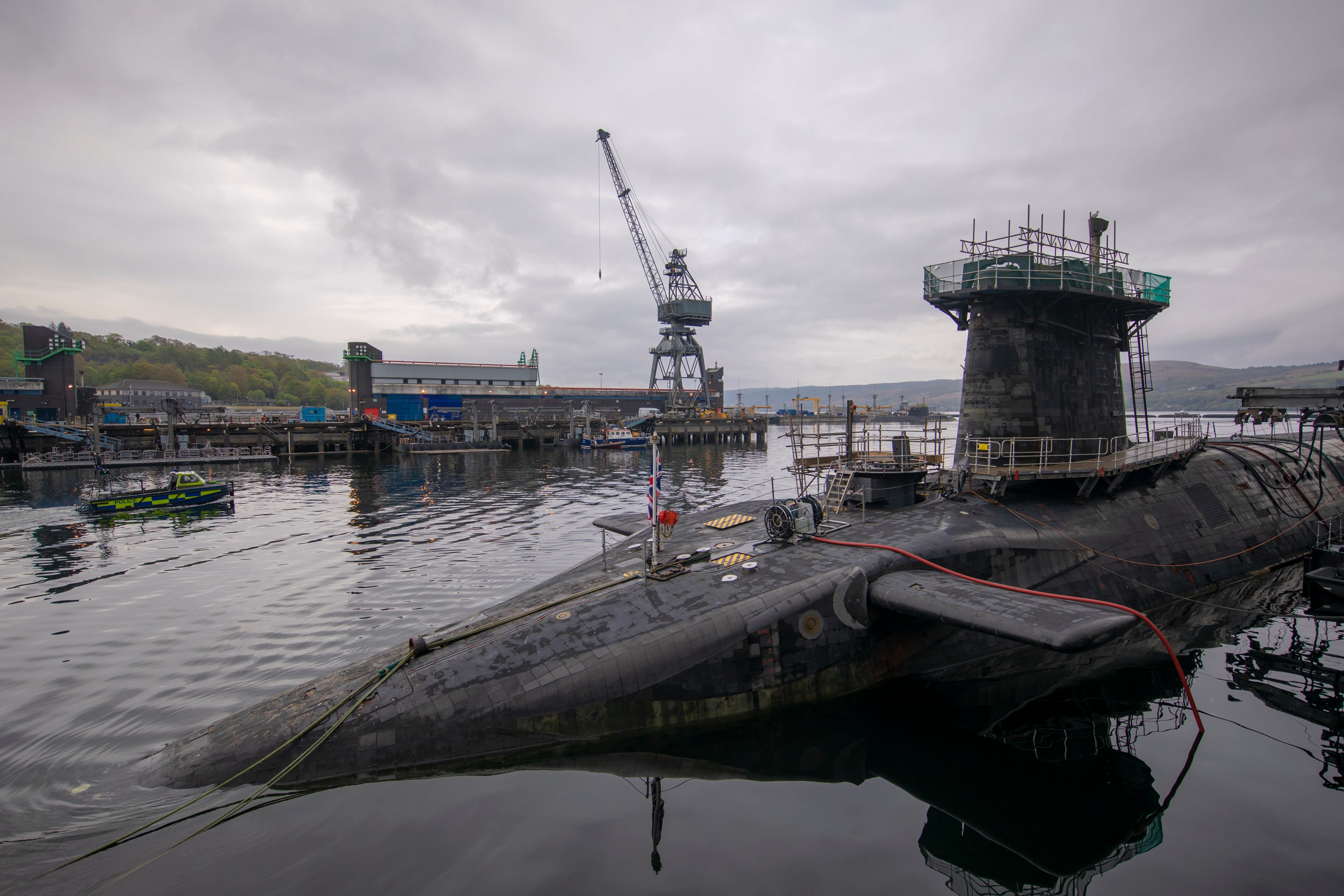MPs warned of threats from the Arctic as calls made for greater military presence in the north
It comes as an independence row is brewing in Scotland over the Orkney Islands
Your support helps us to tell the story
From reproductive rights to climate change to Big Tech, The Independent is on the ground when the story is developing. Whether it's investigating the financials of Elon Musk's pro-Trump PAC or producing our latest documentary, 'The A Word', which shines a light on the American women fighting for reproductive rights, we know how important it is to parse out the facts from the messaging.
At such a critical moment in US history, we need reporters on the ground. Your donation allows us to keep sending journalists to speak to both sides of the story.
The Independent is trusted by Americans across the entire political spectrum. And unlike many other quality news outlets, we choose not to lock Americans out of our reporting and analysis with paywalls. We believe quality journalism should be available to everyone, paid for by those who can afford it.
Your support makes all the difference.New threats in the most northerly part of the globe and the Arctic may require a greater military presence, a committee of MPs has been told.
The Scottish Affairs Committee said the UK should reassess its defence presence in Scotland and called for clarity on how the military presence could be scaled up in response to potential future threats in the Arctic and the strategically important Greenland-Iceland-UK gap (GIUK).
Scottish MPs were also told a strategy on protecting offshore infrastructure is needed in the wake of the sabotage last year.
An undersea explosion ruptured the Nord Stream 1 pipeline — which, until Russia cut off supplies at the end of August, was its main natural gas supply route to Germany.
European diplomats said they have not yet established who the perpetrators were and whether a state was involved, but media reports in March suggested that a pro-Ukraine group was involved in the sabotage.
President Vladimir Putin and Russian officials have accused the U.S. of staging the pipeline explosions, which they have described as a terror attack. Ukraine has rejected suggestions that it might have ordered the attack.

Threats developing in the Arctic may also require a greater military presence, MPs were told. As well as an increased Russian presence, China is taking a growing interest in Arctic politics and climate change is leading to new trade routes opening in the High North, which is loosely defined as the Arctic region and the seas surrounding it, including part of the North Atlantic.
It comes as an independence row is brewing in Scotland over the Orkney Islands. Council leader James Stockan recently put forward a motion for a vote on exploring leaving the United Kingdom. The move could see the remote island become a part of Norway.
After conducting an inquiry on defence in Scotland, evidence from the Human Security Centre stated the RAF had too few Poseidon maritime patrol jets and Wedgetail early warning aircraft to provide a persistent presence.
Andrew Dorman, a professor of international security at King’s College London, told the MPs the RAF would require more Typhoon and F-35B fighters if there were a serious escalation in the region.
The Faslane naval base’s role in policing the GIUK gap was said to be “critical”.
The committee is chaired by the SNP’s Pete Wishart, whose party wants the removal of the Trident nuclear deterrent from an independent Scotland.
However, the report recognised there would be serious implications for the region if nuclear submarines were removed.

It said: “Whilst not all members of the committee support this view (of maintaining Trident), we do recognise the serious implications for the UK and Nato should the nuclear fleet ever be removed from Faslane.”
The report continued: “The UK Government told us that repair of subsea cables was a matter for the cables’ commercial owners; we are concerned that the UK Government did not have more to say about how such important infrastructure could be repaired in the event of sabotage or failure.
“The UK Government should produce and publish a strategy for protecting offshore infrastructure.”
Mr Wishart said Scotland had a “fundamental” role in the defence of the region.
He said: “During our inquiry we heard widespread agreement that the Arctic is of growing strategic importance and maintaining a well-maintained and resourced military capability is essential to meet the UK’s defence interests.
“Because of its geography Scotland is home to a number of the UK’s strategic military assets and in our report we call on the UK Government to look at how the defence presence in Scotland could be scaled up if required to meet future threats if required.
“We are also calling for a review of the UK’s cold weather capabilities.
“We also looked at the opportunities and threats that may emerge because of climate change in the Arctic and the High North.
“Emerging trade routes and the responsibility of protecting offshore and subsea infrastructure are likely to become emerging priorities in a fast-changing environment.”




Join our commenting forum
Join thought-provoking conversations, follow other Independent readers and see their replies
Comments